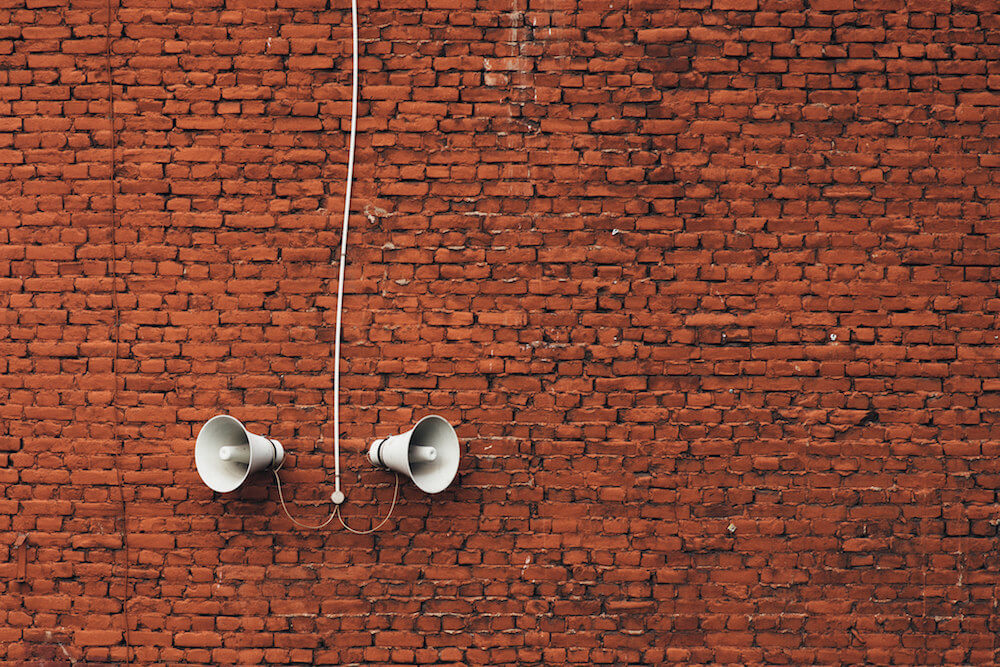The external world constantly bombards us with information at various levels: these are images and sounds, touches and smells. The audio player is one of the most persistent information flows that we contact every day.
At the same time, we have almost no influence on what
sounds we hear : we are surrounded by the rumble of cars, the rumble of a subway car, conversations of neighbors in the queue, music from a colleague’s headphones, construction noise. Often we try to block this background with our own music or, for example, audiobooks.
All this cacophony pursues us all day long, and we can do little about it.
In this case, everything that we hear (whether we like it or not) affects our mood, psyche and even brain activity. We understand what sounds are triggers and what they cause, why you want to dance from some sounds, cry from others, and how you can control the influence of an audiophone on your life.
 Photo by Maxim Mogilevskiy / CC BY-ND
Photo by Maxim Mogilevskiy / CC BY-NDNature vs Nurture
People hear sounds in the same way (this is a physiological process), but they may
perceive them differently - it already depends on the work of each particular brain. It is the brain that decides how to treat each particular sound. Therefore, someone may find singing of the same birds pleasant, and someone annoying. Our attitude to sounds is shaped by our upbringing, previous experience, and personal cognitive features.
There is the concept of "noise pollution": this is a situation where the noise produced by humanity and its "derivatives" becomes so loud, atypical and uncontrollable that it begins to violate the order of life activity of a person and other living creatures. For example,
studies show that prolonged exposure to a “noise-polluted” space increases blood pressure and increases the risk of a heart attack. This is due to the fact that a person does not get used to the level of the surrounding noise, but is
wasting energy on his suppression , which the body could send to another channel.
The distinction between noise and sound (noise vs sound) for a person is not always innate and not natural -
it depends on our previous experience. For example, we enter a cafe and hear a whole range of sounds - a coffee machine grinds grains, a microwave beeps, people communicate, a waiter reads the menu. We are accustomed to them, so almost do not pay attention to them. And those who have never been to a cafe in a big city, most likely will find this sound background very straining. Actually, even we, being tired, sometimes lose the ability not to be irritated by this familiar, but still cacophony.
At the same time, there are sounds to which the reaction in humans is developed by evolution: for example, we find the unpleasant grinding of nails on glass or a knife on a plate. We react to them instinctively, on a subconscious level, because our genes have an association with the sound made by the claws of predators. But not all loud, annoying or unwanted sounds are not necessarily perceived by us negatively. This may depend on the social context - for example, loud sounds at a rock festival do not cause rejection by visitors.
Our memory can also transform our perception of sound. For example, some very unpleasant noise — a lawn mower, an ice crusher, whatever — can cause warm feelings and nostalgia if in the past it was associated with something pleasant. For the rest, this sound will remain a terrible noise.
In other words, how we perceive sound depends on a lot of factors - psychological, social, biological and others.
Training, mood and productivity
Sound background has a great influence on our life - even our ability to learn, our mood and activity at work depend on it.
In 1974, a study was conducted: two sixth grade students studied at different ends of the building. In one, it was quiet, to the other constantly came the noise of trains passing by. As a result, it turned out that schoolchildren, who studied in silence,
overtook the one-year-olds from the noisy side by the level of knowledge. Children who grew up in a more noisy environment (under the howl of airplanes or the roar of trains) worse read, speak and demonstrate a slower cognitive development than those who grew up in silence.
Sounds affect productivity. Studies show that the buzz of open spaces often weakens the ability of employees to concentrate, remember, solve complex problems and
causes real stress . The same constant noise in open office spaces is not just constantly distracting, but also
makes it difficult to concentrate after the disappearance of the direct stimulus.
 Photo Stinging Eyes / CC BY-ND
Photo Stinging Eyes / CC BY-NDTrigger Sounds
We
wrote about how using binaural audio made it possible to create a game that could quite accurately convey to the player the sensations experienced by a person with psychotic disorders.
The sound can often cause a reaction, which we can hardly explain to ourselves, or which we completely perceive unconsciously.
For example, there is a theory that the so-called “haunted house” effect can be caused precisely by sound, and the “special” - by infrasound, sound waves, whose frequency is lower than that perceived by the human ear. In some situations, we may experience anxiety, fear, and goosebumps - not knowing
why .
And for patients with OCD (obsessive-compulsive disorder), the whole sound world is often the source of all kinds of triggers that can cause anxiety and even affect the overall ability to function. Often these are some completely domestic sounds - coughing, champing, flick of a handle, and a door slam.
In psychology, there is a special term - hypersensitivity to noise. She works on several levels. The most obvious is unpleasant associations (often unconscious) that are associated with certain sounds, and it is they that cause anxiety in a person.
By the way, we are not necessarily talking about any individual sounds. Unpleasant associations can cause songs, even once beloved ones - for example, if you rehearsed a performance for a long time, but it ended up failing. Or if a dramatic life episode is connected with a beautiful melody in your memory. Then, having heard the song again, you hardly want to sing along with it.
The next level of reaction is flight (some sounds can cause fear, and primitive instinct turns on, the desire to hide from danger), irritation and stress (think about the sound with which a new e-mail message appears in a particularly busy day in the mailbox).
As for the disorders associated with increased sensitivity to noise, they have a fairly wide range. For example, in people with sensory processing disorder, the most
common sounds can cause a completely unexpected reaction - this is due to the fact that the human brain processes external stimuli, but reacts disproportionately to them. Therefore, the sound of a broken gum, on which a healthy person may not even pay attention, a person with a disorder may cause a desire to immediately plug his ears.
Therapy in this case is almost not related to how we hear sounds, but how our brain perceives them. A person with increased susceptibility can hear sounds just like everyone else, but perceive them as louder, more annoying or annoying. Possible causes vary from migraine or unpleasant memories to mental disorders.
One of the methods to combat increased susceptibility is to create the most comfortable environment around you, put sounds that cause anxiety in the headphones, and turn them off when the feeling becomes completely uncomfortable. Repetition can reduce anxiety - the mind becomes accustomed to the fact that no real discomfort is associated with sound.
Then the process can be repeated in a less comfortable environment. But if we are talking about mental disorders, and not just unpleasant associations, such experiments, of course, should be carried out only under the supervision of a doctor.
In the rest
Industrialization, urban growth, technical revolution, the acceleration of life - these are dozens of factors that have shaped our sound environment. His congestion affects the human psyche, his cognitive abilities, attention and health.
Our perception of sounds is influenced by the environment, upbringing, mood, previous experience, as well as genes, biological predispositions, and even age.
Therefore, it is useful to listen to silence, add white noise to your daily routine and more consciously approach how your life is “voiced”.
Additional reading in our "World Hi-Fi":